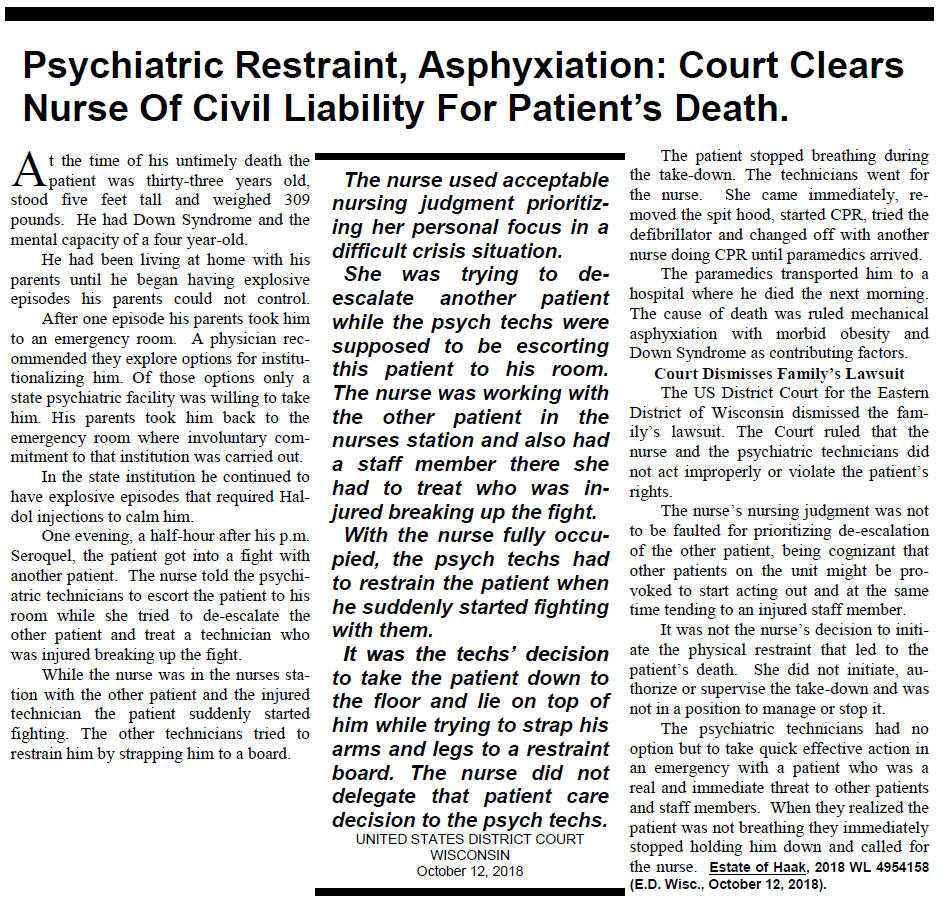
Click here to request a complimentary copy of our current issue.

Patient Stops Breathing, Dies After Take-Down: Court Says Clinical Assistant Can Be Fired.
The clinical assistant had been trained to monitor the patient's condition closely throughout any restraint maneuver.
She was instructed to call the nurse immediately and emphasize that it was an emergency if a patient stopped breathing during a take-down.
Regulations also required the assistant to start CPR immediately when a patient stopped breathing.
The assistant apparently experienced a dissociative episode of her own while restraining this patient, stemming from her own diagnosis of post-traumatic stress disorder.
The clinical assistant was guilty of Class I neglect, which is grounds for firing. Her own psychological disability rendered her unqualified for this type of direct patient care. MISSOURI COURT OF APPEALS, 1999.
A clinical casework assistant worked in a state-run residential facility for emotionally disturbed children. A thirteen year-old girl had been in the facility for six months and was known to have spells of self-harm where she would bang her head.
One day when the girl began banging her head on her desk the clinical assistant took charge of a group of staff who took the patient down to the floor and held her down to keep her from banging her head.
They restrained the patient for more than fifteen minutes without monitoring her condition.
When the patient stopped struggling, they turned her over on her back and discovered she was not breathing. In fact, according to the court, her lips had already turned blue.
The clinical assistant did not start CPR as she was required. She did send someone to get the nurse, but she did not tell the person to tell the nurse it was a life-threatening emergency. The nurse came in a few minutes, but it was too late. The patient went to the hospital and was put on life support, but that was removed and she died the next day.
The Missouri Court of Appeals ruled the clinical assistant was guilty serious neglect which justified her termination. This was true even though she apparently had gone into a dissociative state, did not realize what was happening and was not morally to blame. Still, the possibility of that happening again rendered her unfit for her job, the court ruled. Seabaugh v. Cassell, 998 S.W. 2d 593 (Mo. App., 1999).
More references from nursinglaw.com
http://www.nursinglaw.com/psychrestraint.pdf
http://www.nursinglaw.com/psychiatric-patient-asphyxiation.pdf
http://www.nursinglaw.com/restraint-combative-patient.htm
http://www.nursinglaw.com/headlock-psych-nurse.htm